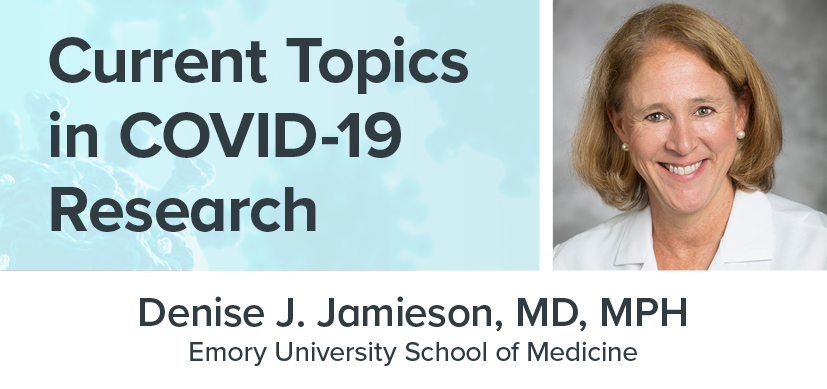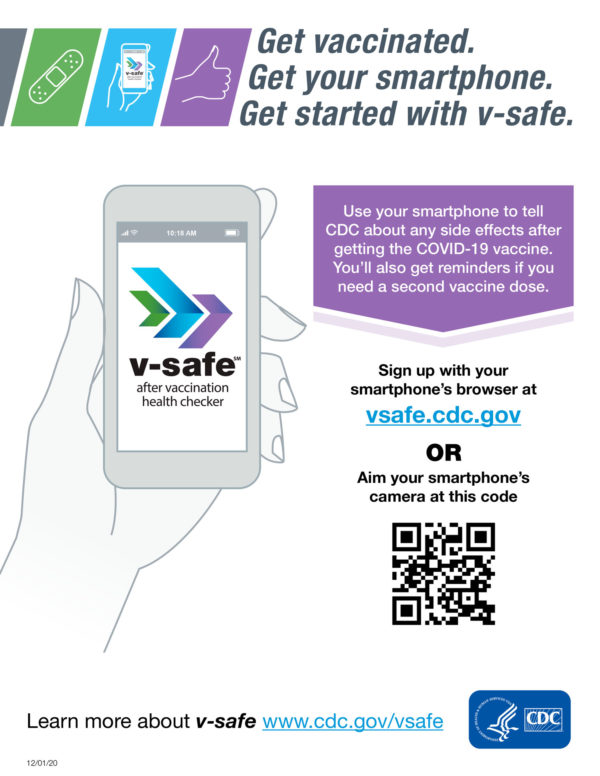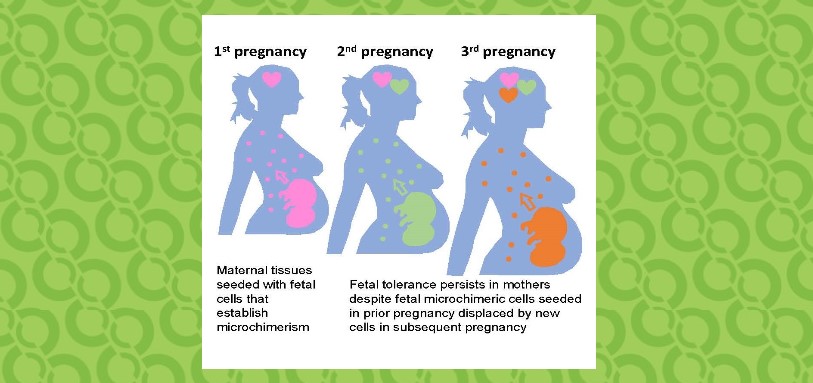Pregnancy in the Time of COVID-19
Post Date: March 15, 2021 | Publish Date:

On March 10, 2021, Denise Jamieson, MD, MPH, highlighted the latest developments on COVID-19 and pregnancy. Topics included vaccinations for pregnant and lactating women, clinical course and severity, birth outcomes, and risks of perinatal and breastfeeding transmission.
“Pregnancy in the time of COVID-19” is the fourth installment of the Current Topics in COVID-19 Research Seminar Series (click here to watch the recording). Hosted by the Cincinnati Children’s Divisions of Infectious Diseases and Biostatistics & Epidemiology, these free virtual seminars feature discussions with cross-disciplinary research professionals on the latest COVID-19 information and science.
Jamieson is the James Robert McCord Professor and Chair of the Emory University Department of Gynecology & Obstetrics. As an expert in emerging infectious diseases in pregnancy, her presentation addressed various questions surrounding COVID-19 and pregnancy.
Are pregnant persons more susceptible to becoming infected with SARS-CoV-2 (COVID-19)?
Jamieson revealed that there’s no definitive data from appropriate comparison groups on whether pregnant persons are more susceptible to COVID-19.
“It remains unknown whether pregnancy increases susceptibility to COVID-19,” she said.
Are pregnant persons with COVID-19 at increased risk of severe disease?
“It does appear—not surprisingly and similar to influenza—that pregnant persons do seem to have more severe disease,” Jamieson confirmed.
She shared supporting evidence from the CDC’s national surveillance data, which showed that pregnant persons infected with COVID-19 were more likely to be admitted to the intensive care unit, need mechanical ventilation, require ECMO, or pass away.
“These data are why pregnant women are included in the CDC’s list of medical conditions that increase the risk of severe disease, and that becomes important when you start talking about prioritization plans for vaccination,” she said.
Does COVID-19 affect pregnancy outcomes?
In terms of the effects on the embryo and fetus, it seems that there is an increased risk of preterm birth.
“Many studies show an increased risk of preterm birth, a few do not,” Jamieson said. “Even in the PRIORITY study, if you look at mothers who were infected close to the time of delivery, there is a difference in gestational age.”
She also referenced a systematic review of 30 reports suggesting that preterm birth is more common among those infected with COVID-19.
“It’s unclear whether this is due to the direct effects of infection, or whether it’s due to maternal illness, or even iatrogenic providers delivering women sooner because they’re infected with COVID-19,” she noted.
Although stillbirths are relatively rare and difficult to study, Jamieson revealed that there are some studies suggesting a possible association of COVID-19 infection and stillbirth. However, other studies have found no increase in the stillbirth rate during the pandemic versus pre-pandemic.
Overall, there has been a reduction in preterm birth, driven by a reduction in extreme prematurity. However, this reduction has not been observed in Sweden and the U.S, which did not implement a full nationwide lockdown in the same way as other countries. Though these are ecologic observations, they may be valuable for identifying potential risk factors for preventing preterm birth.
Is there intrauterine, intrapartum, or postnatal transmission of SARS-CoV-2?
“It appears that intrauterine transmission occurs, but it does seem to be rare,” Jamieson said.
She attributed this to possibly the lower expression of receptors required for SARS-CoV-2 cell entry, as demonstrated by several groups and relatively low levels of maternal viremia associated with COVID-19 infection.
Can SARS-CoV-2 be transmitted through breast milk?
“There could be possible transmission through breast milk,” Jamieson noted. “It also could be from maternal contact.”
She revealed that early on in the pandemic, obstetricians were concerned about this possibility and questioned whether neonates should be separated from their mothers at the time of birth. Since then, however, more information has suggested that breastfeeding is not as risky as previously suspected.
Can pregnant persons receive COVID-19 vaccines?
“Pregnant persons can be safely offered COVID-19 vaccines,” she confirmed.
Jamieson shared that when the COVID-19 vaccines were first granted Emergency Use Authorization, there was modest safety information from Developmental and Reproductive Toxicology (DART) studies performed in rodents, as well as the handful of participants who inadvertently became pregnant during the clinical trials, although pregnant persons were excluded.

The CDC is rapidly accumulating safety data from their V-SAFE system, which is a new smartphone-based tool that uses text messaging and web surveys to provide personalized health check-ins after you receive a COVID-19 vaccination. One of the questions asks whether or not you are pregnant, and pregnant women have the option of enrolling in a follow-up module with the CDC.
According to a report by the CDC on Feb. 16, 2021, more than 30,000 pregnancies have been reported to V-SAFE, but there are likely more pregnant women who did not register through the system and were vaccinated.
What do we know about short-term safety among pregnant persons who were vaccinated?
Jamieson shared evidence that confirmed there’s no difference between pregnant and nonpregnant persons if you look at systemic and local reactions (e.g. fatigue, headache, myalgia, chills, nausea, fever, pain, swelling, redness, and itching).
Among the 1,800 pregnant women enrolled in the CDC’s follow-up module, there have been 275 completed pregnancies.
“These are still fairly modest numbers,” she admitted. “The good news is if you look at the registry overall and compare it to background rates of any of these outcomes (e.g. miscarriage and stillbirth), you’ll see that there are really no differences and no safety signals or areas for concern.”
What does the American College of Obstetricians and Gynecologists (ACOG) say about COVID-19 and pregnancy?
People who are recommended to receive COVID-19 vaccine should be offered the vaccine regardless of pregnancy status.
“I think we’re going to need to start shifting our language from offering to recommending, but ACOG is not there yet,” Jamieson revealed.
Pregnant persons should be encouraged to talk with their obstetric healthcare provider about their vaccination plan, but this shouldn’t be a requirement.
“What I tell patients is ‘get the vaccine when you’re able to get it because there’s no guarantee that the same vaccine is going to be available to you next week,’” she said. Jamieson also shared that due to lack of supporting data, ACOG is not making a preferential recommendation for one trimester or vaccine.
Persons planning to become pregnant who are recommended to receive vaccine should be encouraged to complete their vaccination series prior to conception to ensure they’re maximally protected prior to pregnancy.
Pregnancy testing should not be a requirement for COVID-19 vaccination.
Lactating persons should be offered vaccine.
Watch a recording of the entire seminar.
Next up in the Current Topics in COVID-19 Research Seminar Series
Monica Webb Hooper, PhD, Deputy Director of the National Institute on Minority Health and Health Disparities (NIMHD), will present “COVID-19 and equitable diffusion of the vaccines.”
Webb Hooper will describe the rationale and data supporting concerns about vaccine hesitancy among populations that experience health disparities and equitable diffusion, existing racial/ethnic differences in common vaccine uptake, and science that the NIMHD plans to support.
Join this free virtual seminar at 2 pm (ET) April 14, 2021, via Zoom.






